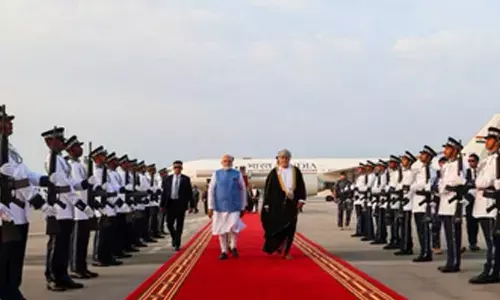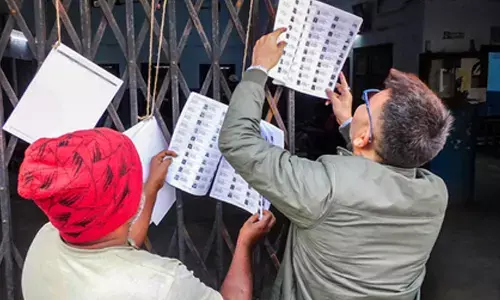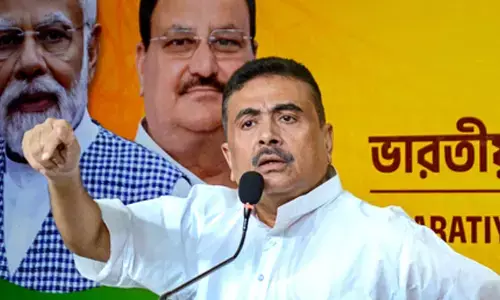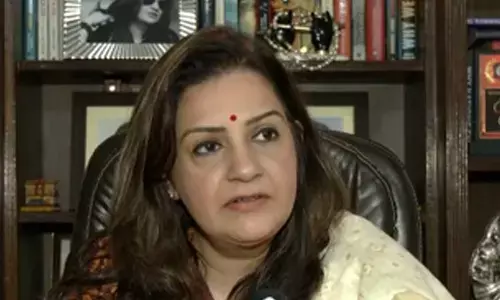Blame Centre for skyrocketing petrol price

However, the global trade in crude oil is mostly undertaken through the US banks and denominated in US dollars USD So far, these impending restrictions have had no impact on Iran Iran continues to produce oil at its normal rates
US President Donald Trump has declared that countries will not be allowed to undertake financial transactions with Iran through the US financial system beginning November 4. Trump has imposed no restrictions on buying crude oil from Iran. He has imposed restrictions only on making payments through the US banks.
However, the global trade in crude oil is mostly undertaken through the US banks and denominated in US dollars (USD). So far, these impending restrictions have had no impact on Iran. Iran continues to produce oil at its normal rates.
However, the market sentiment is that the global supply of oil may be affected if sanctions become effective. The supply of crude oil from Iran will be less. The total supply of crude oil will be less. That expectation is leading to an increase in the price of crude oil from USD 60 per barrel a year ago to USD 80 per barrel presently.
The United Nations had imposed certain sanctions on Iran earlier because Iran was developing nuclear weapons. The US, along with the European countries had entered into an agreement with Iran in 2015. The economic sanctions imposed by the United Nations were withdrawn subsequently to the agreement.
The International Atomic Energy Agency has certified that Iran had adhered to the 2015 agreement. However, US President Trump feels that the 2015 agreement was weak as it does not prohibit Iran from sponsoring terrorist and such activities. Thus, he has imposed the impending sanctions from coming November unilaterally.
The European signatories to the agreement, however, are not on the same page with the US. They feel that the agreement is good. They want to salvage the 2015 agreement so that Iran does not go back to making nuclear weapons.
The problem is that global trade in crude oil is undertaken through the US banks. In order to continue to import oil from Iran, Germany, France, Britain, China and Russia are in talks to create a special financial infrastructure to route payments without connecting with the US financial system.
Such a structure, if put in place, would not only render the US sanctions ineffective but also break the role of the US dollar as the global currency.
India had continued to buy crude oil from Iran during the previous sanctions imposed by the UN.
At that time, Indian importers made one-half of payments for the oil in rupees which were deposited in the Iran Federal Bank branch in Mumbai. Iran, in turn, used the rupees to buy rice and other commodities from India. Indian government officials are reportedly in talk with Iran to make the full payment in rupees in the present round of sanctions.
It is clearly in India’s interests to continue to buy oil from Iran. However, doing so, even if the payment is made in rupees, will irritate Trump. India has to choose whether to follow the US diktat and stop buying oil from Iran; or to join Germany, France, Britain, China and Russia in bypassing the US sanctions that are likely to fail anyways.
Perhaps the Indian government wants to follow the US diktat as a quid pro quo for US action against Pakistan. The US has indeed hardened its stance towards Pakistan in the recent period. Thus, the government of India may feel that the benefits from the strategic US actions against Pakistan outweigh the economic loss from higher price of oil.
At the same time, we have seen how China has mostly nullified the US pressure on Pakistan by providing assistance to that country. Personally, I am of the view that the US will lose its battle against Iran and we must join with Germany, France, Britain, China and Russia to evolve payment mechanisms that bypass the dollar even if that irritates Trump. That would help us to import oil from Iran and the oil price may come down.
The second cause of the increase in the price of petrol is the slide of the rupee. The price of petrol increases in India if the value of the rupee declines against the dollar. Let us say the price of crude in the global market is USD 60 per barrel and the exchange rate of the rupee is Rs 62 to a dollar. The rupee value of oil would then be Rs 3,720 per barrel.
Now, let us say the price of crude in the global market remains unchanged at USD 60 per barrel but the exchange rate of the rupee declines to Rs 72 to a dollar. The rupee value of oil would now become Rs 4,320 per barrel. Indian petrol producing companies would have to pay more rupees to import a barrel of oil and they would have to increase the selling price of petrol correspondingly.
Question is why the rupee is declining? The rupee is declining because we are earning less amounts of dollars from exports while we require to spend higher amounts of dollars for our imports. Crude oil is certainly an important part of our imports. But, leaving aside oil, our exports are still much less than imports. Chinese toys, lights and footballs are selling in India as hot cakes because the imported goods are cheaper than those produced by Indian manufacturers.
This is surprising because the cost of raw materials such as cotton and leather used by our and Chinese manufacturers is the same. The wages of our workers is about on-half of the wages earned by the Chinese workers. Thus, our cost of production should be lower than China and we should be able to export toys, lights and footballs to China. But our cost of production is higher than in China.
The reason is bureaucratic extortion. The laws are made by bureaucrats to make things complicated so that the businesses fail to comply and that provides an opportunity to the bureaucracy to collect grease money. GST is one example how the small businesses have been enmeshed in bureaucratic maze. Our judicial system is both corrupt and amenable to delays.
It takes more than four years to recover a money through the courts. This bureaucratic maze increases our cost of production so much that it nullifies our advantage due to lower wages. The solution will come from systemic reform of lower bureaucracy. Unfortunately, the UPA and NDA governments have taken no steps in this direction.
To conclude, the increase in the price of petrol is because of US sanctions against Iran. India must join Germany and other countries to bypass US sanctions so that the price of oil is contained. And, the government must make systemic improvements in ensuring bureaucratic accountability and controlling corruption at the ground level. Author was formerly Professor of Economics at IIM Bengaluru




















